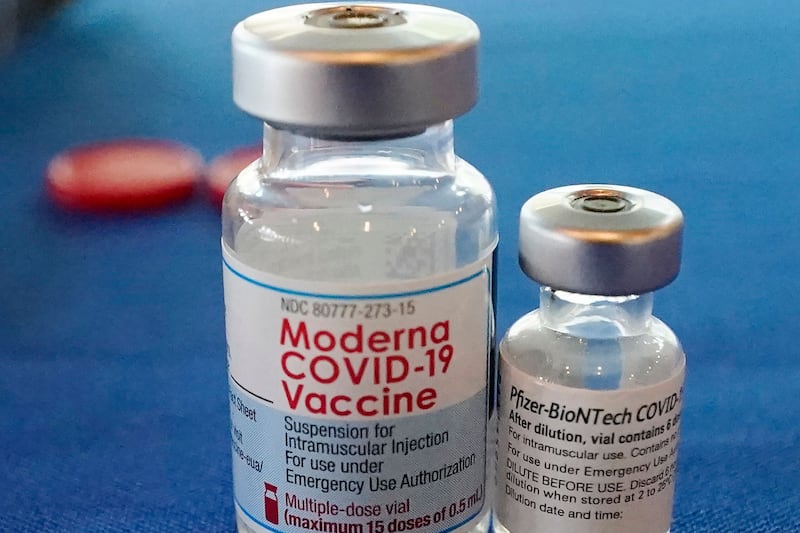A multimillion-pound legal battle between rival developers of Covid-19 jabs over vaccine technology patents is set to continue at the Court of Appeal.
In July, a High Court judge delivered a mixed ruling in the long-running dispute that has pitted pharmaceutical giant Pfizer and drug manufacturer BioNTech against vaccine maker Moderna.
The firms faced off at two trials in London earlier this year centred on the use of messenger RNA (mRNA) technology in life-saving coronavirus jabs.
At a hearing in London on Wednesday, Pfizer and BioNTech were granted permission to appeal against a part of the judgment from Mr Justice Meade.

US firm Moderna sued American competitor Pfizer and its German partner BioNTech for alleged patent infringement in relation to their Comirnaty vaccine, arguing it was due compensation for products manufactured after March 7 2022.
Pfizer and BioNTech denied infringement, with both firms seeking the “revocation” of two Moderna patents, claiming they were “invalid”.
Mr Justice Meade concluded one of the European Moderna patents, labelled EP565, was “invalid”.
But the judge said a different patent, called EP949, was “valid” and was infringed by Pfizer and BioNTech.
At Wednesday’s hearing, the same judge granted Pfizer and BioNTech permission to appeal against his EP949 decision, but refused Moderna permission to appeal against his ruling over the EP565 patent.
Mr Justice Meade said Moderna could still ask the Court of Appeal directly for the green light to challenge the EP565 decision.
The judge, who also made decisions over the calculation and payment of legal costs, said “something is going wrong” in a case where together the firms had spent an estimated £19 million.
According to Moderna’s written submissions, the company’s estimated overall legal costs are about £9,439,864, while Pfizer and BioNTech’s are approximately £9,880,851.
Andrew Waugh KC, leading Moderna’s legal team, said in written arguments that there were “compelling” reasons why a higher level court should consider the EP565 case.
Mr Waugh said that “the amounts at stake” in the legal action, in terms of potential financial compensation and costs, “are at the very highest end of the scale for a patent dispute”.
He said a Court of Appeal ruling over the case would have “greater significance” amid other litigation in Ireland, the Netherlands, Germany and Belgium.
Amid discussions about the payment of legal costs, Mr Waugh told the hearing: “We are talking about millions of pounds, which is more than the value of many if not most High Court actions.”
Commenting on the value of the litigation, he later added: “This is a critically important case because it does concern the patentability of the first Covid vaccines that came into effect and basically rescued us from the pandemic.”
Mr Waugh claimed Moderna was the “overall winner” in the litigation so far.
Tom Mitcheson KC, representing Pfizer and BioNTech, said in written arguments that the judge had taken an “erroneous approach” in his July ruling and that the two firms had a “real prospect of success” in an appeal against the EP949 decision.
He said the firms were the “overall successful parties” in relation to the EP565 patent.
Mr Mitcheson resisted Moderna being given permission to appeal over EP565, arguing at the hearing: “This is a classic case where all Moderna is trying to do is re-argue the case.”
Moderna’s Spikevax vaccine was the third jab to be approved for use in the UK in January 2021 after the Pfizer/BioNTech and Oxford/AstraZeneca vaccines were approved.









